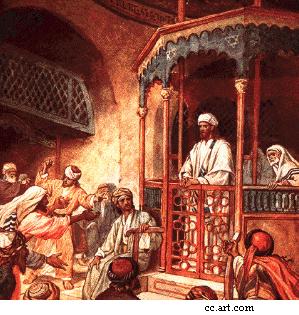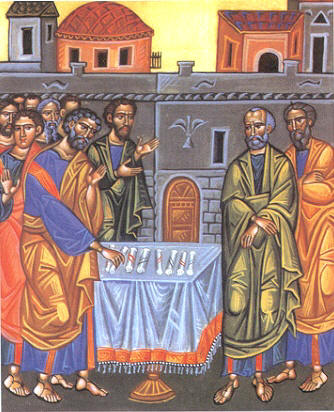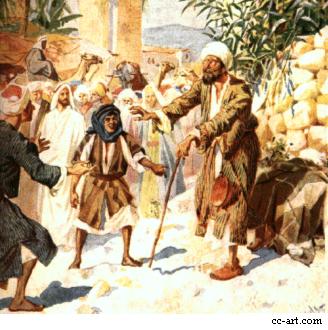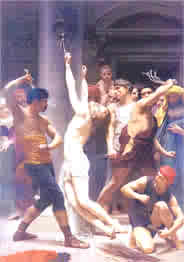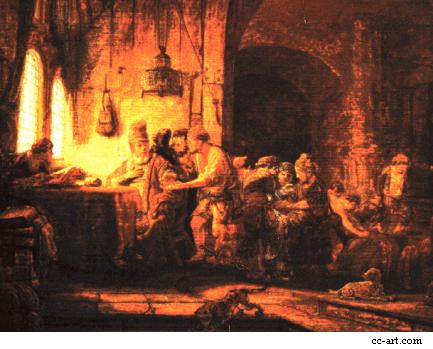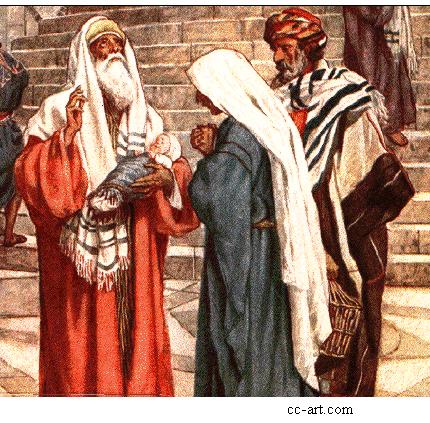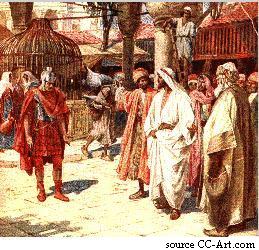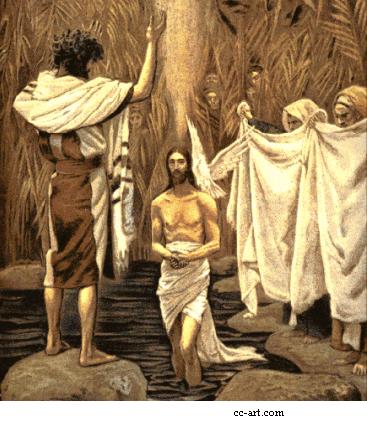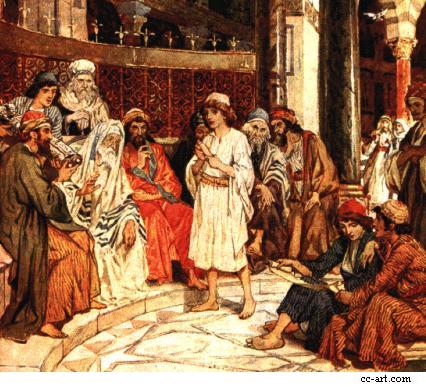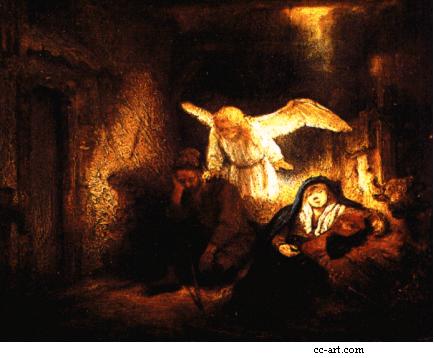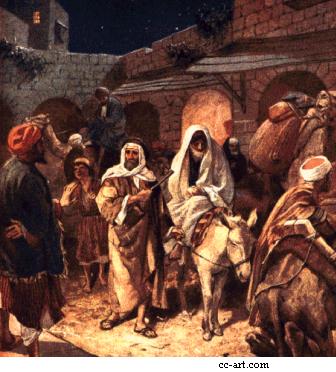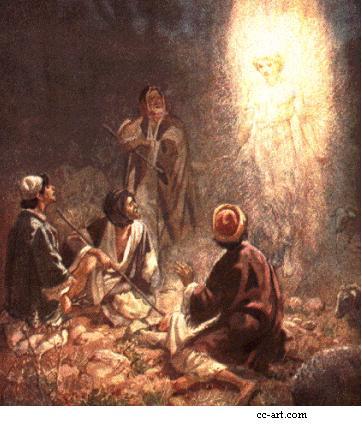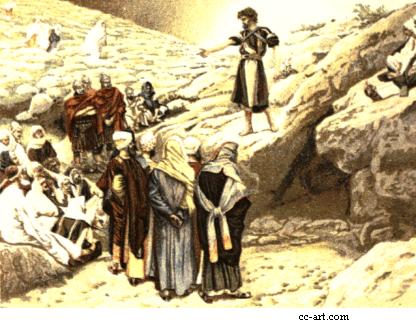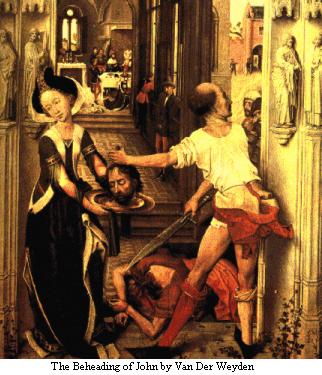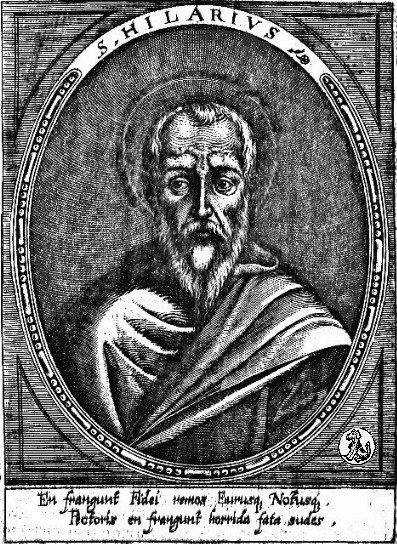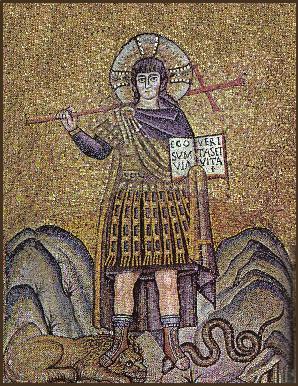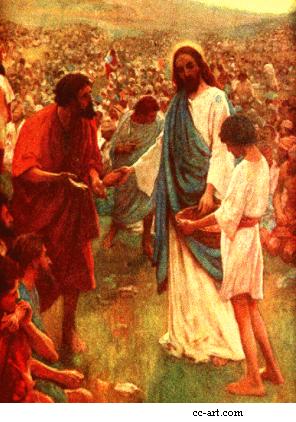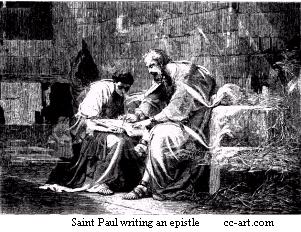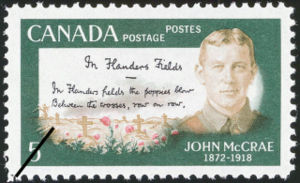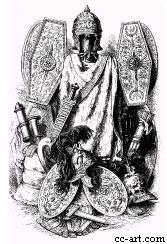Sermon by St. Cyril of Alexandria [ca. 430]
Christ, therefore, was born in Bethlehem at the time when Augustus Caesar gave orders that the first enrollment should be made. But what necessity was there, some one may perhaps say, for the very wise Evangelist to make special mention of this? Yes, I answer: it was both useful and necessary for him to mark the period when our Savior was born; for it was said by the voice of the Patriarch: The head shall not depart from Judah, nor a governor from his thighs until He come, for Whom it is laid up: and He is the expectation of the Gentiles. [Gen. 49:10] That we might learn that the Israelites then had no king of the tribe of David, and that their own native governors had failed, with good reason he mentions the decrees of Caesar, as now having Judea and the rest of the nations beneath his scepter, for it was as their ruler that he commanded the census to be made.
Because he was of the house and lineage of David. [Luke 2:4] The book of the sacred Gospels referring the genealogy to Joseph, who was descended from David's house, has proved through him that the Virgin also was of the same tribe as David, inasmuch as the Divine law commanded that marriages should be confined to those of the same tribe; and the interpreter of the heavenly doctrines, the great apostle Paul, clearly declares the truth, bearing witness that the Lord arose out of Juda. [Heb. 7:14] The natures, however, which combined unto this union were different, but from the two together is one God the Son, without the diversity of the natures being destroyed by the union. For a union of two natures was made, and therefore we confess One Christ, One Son, One Lord. And it is with reference to this notion of a union without confusion that we proclaim the holy Virgin to be the mother of God, because God the Word was made flesh and became man, and by the act of conception united to Himself the temple that He received from her. For we perceive that two natures, by an inseparable union, met together in Him without confusion, and indivisibly. For the flesh is flesh, and not deity, even though it became the flesh of God; and in like manner also the Word is God, and not flesh, though for the dispensation's sake He made the flesh His own. But although the natures which concurred in forming the union are both different and unequal to one another, yet He Who is formed from them both is only One; nor may we separate the One Lord Jesus Christ into man severally and God severally, but we affirm that Christ Jesus is One and the Same, acknowledging the distinction of the natures, and preserving them free from confusion with one another.
With Mary, his espoused wife, being great with child.[ Luke 2:5] The sacred Evangelist says that Mary was betrothed to Joseph, to show that the conception had taken place upon her betrothal solely, and that the birth of the Emmanuel was miraculous, and not in accordance with the laws of nature. For the holy Virgin did not bear from the immission of man's seed. And what, therefore, was the reason for this? Christ, Who is the first-fruits of all, the second Adam according to the Scriptures, was born of the Spirit, that he might transmit the grace (of the spiritual birth) to us also; for we too were intended no longer to bear the name of sons of men, but of God rather, having obtained the new birth of the Spirit in Christ first, that he might be foremost among all [Col. 1:15], as the most wise Paul declares.
And the occasion of the census most opportunely caused the holy Virgin to go to Bethlehem, that we might see another prophecy fulfilled. For it is written, as we have already mentioned, And thou Bethlehem, house of Ephratah, art very small to be among the thousands of Judah: from thee shall come forth for me to be Ruler in Israel! [Micah 5:2]
But in answer to those who argue that, if He were brought forth in the flesh, the Virgin was corrupted; and if she were not corrupted, that He was brought forth only in appearance, we say, the prophet declares, the Lord, the God of Israel, hath entered in and gone out, and the gate remaineth closed. [Ezekiel 44:2] If, moreover, the Word was made flesh without sexual intercourse, being conceived altogether without seed, then He was born without injury to her virginity.
(And so it was, that, while they were there, the days were accomplished that she should be delivered.) And she brought forth her firstborn Son, (and wrapped him in swaddling clothes.) [Luke 2:7-8]
In what sense then her firstborn? By firstborn she here means, not the first among several brethren, but one who was both her first and only son; for some such sense as this exists among the significations of 'first-born.' For sometimes also the Scripture calls that the first which is the only one; as I am God, the First, and with Me there is no others. [Isaiah 44:6] To show then that the Virgin did not bring forth a mere man, there is added the word firstborn; for as she continued to be a virgin, she had no other son but Him Who is of the Father; concerning Whom God the Father also proclaims by the voice of David, And I will set Him Firstborn high among the kings of the earth. [Psalm 88(89):27] Of Him also the all-wise Paul makes mention, saying But when He brought the First-Begotten into the world, He saith, And let all the angels of God worship Him. [Heb. 1:6] How then did He enter into the world? For He is separate from it, not so much in respect of place as of nature; for it is in nature that He differs from the inhabitants of the world; but He entered into it by being made man, and becoming a portion of it by the incarnation. For though He is the Only-begotten as regards His divinity, yet as having become our brother, He has also the name of the Firstborn; that, being made the first-fruits as it were of the adoption of men, He might make us also the sons of God.
Consider, therefore, that He is called the Firstborn in respect of the economy; for with respect to His divinity He is the Only-begotten. Again, He is the Only-begotten in respect of His being the Word of the Father, having no brethren by nature, nor being co-ordinate with any being; for the Son of God, consubstantial with the Father, is One and Alone; but He becomes the Firstborn by descending to the level of created things. When, therefore, He is called the Only-begotten, He is so with no cause assigned by reason of which He is the Only-begotten, being the Only-begotten God into the bosom of the Father [John 1:18]; but when the divine Scriptures call Him Firstborn, they immediately also add of whom He is the first-born, and assign the cause of His bearing this title; for they say, Firstborn among many brethren [Rom. 8:29]; and Firstborn from the dead [Col. 1:18]; the one, because He was made like unto us in all things except sin; and the other, because He first raised up His own flesh unto incorruption. Moreover, He has ever been the Only-begotten by nature, as being the Sole begotten of the Father, God of God, and Sole of Sole, having shone forth God of God, and Light of Light; but He is the Firstborn for our sakes, that by His being called the Firstborn of things created, whatever resembles Him may be saved through Him; for if He must of necessity be the Firstborn, assuredly those must also continue to exist of whom He is the Firstborn. But if, as Ennamios argues, He is called God's Firstborn, as born the first of many; and He is also the Virgin's Firstborn; then as regards her also, He must be the first as preceding another child; but if He is called Mary's Firstborn, as her only child, and not as preceding others, then is He also God's Firstborn, not as the first of many, but as the Only One born.
Moreover, if the first are confessedly the cause of the second, but God and the Son of God are first, then the Son is the cause of those who have the name of sons, inasmuch as it is through Him that they have obtained the appellation. He, therefore, who is the cause of the second sons may justly be called the Firstborn, not as being the first of them, but as the first cause of their receiving the title of sonship. And just as the Father being called the first- for I, He saith, am the first, and I am after these things [Isaiah 41:4] -assuredly will not compel us to regard Him as similar in nature to those that are after Him; so also, though the Son be called the first of creation, or the Firstborn before all creation, it by no means follows that He is one of the things made; but just as the Father said I am the first, to show that He is the origin of all things, in the same sense the Son also is called the first of creation. For all things were made by Him [John 1:3]. As the Creator and Maker of the world, He is the beginning of all created things.
And she laid him in the manger [because there was no room for them in the inn.] [Luke 2:7]
He found man reduced to the level of the beasts; therefore is He placed like fodder in a manger, that we, having left off our bestial life, might mount up to that degree of intelligence which befits man's nature; and whereas we were brutish in soul, by now approaching the manger, even His own table, we find no longer fodder, but the bread from heaven, which is the body of life.
Translated by R. Payne Smith, 1859
Christmas Sermons of Pope Leo the First [ca 450] I, II, III, IV, VI, VII & VIII
